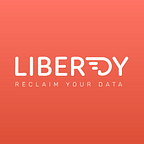Calling for a Users’ Global Bill of Rights
A new EU bill called the GDPR, which takes effect on May 25th, 2018, goes a long way towards protecting the rights of data subjects. The bill states that data subjects are the rightful owners of their own personal information and the companies that collect their data must make a digital, portable copy available at no charge.
In April Facebook CEO Mark Zuckerberg told Reuters that outside of Europe his company would comply “in spirit” with the GDPR. This sounds like great news for data subjects, particularly when considered in conjunction with his assertion in response to Congressman Gene Green, at a recent senate hearing that “we believe that everyone around the world deserves good privacy controls…The GDPR requires us to do a few more things and we are going to extend that to the world.”
The terms of service applicable in Facebook’s Ireland Headquarters, are currently also being applied to approximately 1.5 billion Australian, Asian, African and Latin American users. As Ireland is an EU jurisdiction, all these users should be protected under the GDPR. However, Facebook has recently taken steps to ensure that only European users will be protected by the bill and all other users will be subject to the far less rigorous US regulations.
Zuckerberg has attempted to reassure users with the claim that “We apply the same privacy protections everywhere, regardless of whether your agreement is with Facebook Inc or Facebook Ireland.” Yet if this is the case, why go to the effort of changing the jurisdictional terms of service for one and a half billion users? According to Zuckerberg, in his interview with Reuters, the “specific language” of the bill is what led to the change. This language could have a huge impact on the social networking giant, since failure to comply with GDPR regulations could be costly, resulting in fines that reach as high as 4% of the company’s global revenue.
Facebook is not alone in taking steps to protect itself from the risks of non-compliance with the GDPR bill. LinkedIn is making similar moves, transitioning non-EU users from the terms of service in its Ireland offices to those in its US headquarters.
It’s hard not to feel as though the global, digital corporations that collect and profit from the use of our data are once again, putting their users last. In this case, in the interest of protecting themselves from the cost of a GDPR infraction. In fact, they have little incentive to put their users first. Our trust in their commitment to protecting the security and privacy of our data is unsurprisingly at an all time low and people are looking for an alternative.
Liberdy is a startup hoping to present that alternative, with the creation of a more fair and democratic advertising marketplace. It aims to pave the way for an ad ecosystem that prioritizes the user’s rights.
Liberdy’s Data Foundation is a new non- profit that enables user data to be traded securely and transparently. The Foundation puts data subjects in control and anonymizes their data, so it can be shared safely.
Liberdy hopes to create a more equitable system where everyone benefits, and not just a few digital monopolies. It leverages the combined power of the GDPR and blockchain technology to develop an advertising ecosystem that rewards users every time they share their personal information, and offers accurate, reliable first- hand data to advertisers. Additionally, publishers requiring user consent, in accordance with the GDPR, can effectively encourage user cooperation by offering a trustworthy, safe way for data subjects to earn from the use of their data.
In its efforts to set the bar higher in terms of user protection, Liberdy has built a decentralized blockchain-powered database, which cannot be controlled by any single company, institution, or monopoly. User data is heavily encrypted, and transactions are auditable and transparent to the whole network, meaning that the user is not subject to one digital company’s inadequate security.
Once encrypted, Liberdy uses AI deep learning processes to aggregate and segment the data, before de- personalizing it for sale to advertisers. The company only shares anonymous behavioral data that is not identifiable and cannot be traced to a specific individual.
Liberdy is a great example of how the advertising ecosystem can be disrupted, so it can finally serve the interests of users. By prioritizing the privacy and security of user data, the company can serve as a model for lawmakers outside the EU and the digital companies that collect user information on how to move forward to create a new user-centric advertising economy.
It is becoming apparent that the digital giants that are collecting our data will not willingly give up control over the rights to our personal information. So, it is up to us to lobby for bills like the GDPR outside of Europe as well as to support the companies and institutions that take every possible measure to protect our data, guarantee our privacy and put our interests first.
The Liberdy platform is set to launch in 2018. To learn more about the company, email us at info@liberdy.io, or join our communities, so you can get the latest updates.
